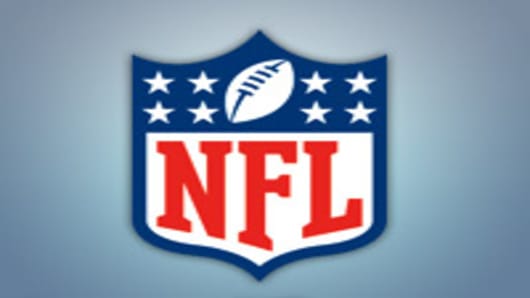Sports Business Journal reported this week that not one potential first round NFL draft pick has signed a shoe deal.
And while those quoted cited the economy or a lack of star power, it actually has more to do with the fact that the economy has made companies like NikeandAdidas realize that most of the deals they've signed in the past just didn't make sense.
Agents and marketers can blame the economy all they want, but the bottom line is that much of the spending by the shoe companies was just stupid business.
NFL players don't have signature shoes like basketball players do, so almost every deal was a brand play. And brand plays are just code for deals that you can't justify a dollar-for-dollar return on investment.
Did a recent draft pick who didn't even appear in shoe company's advertising even deserve $100,000 a year deal?
The answer is no. And the scary thing about the business is when that the economy bounces back, aside from the rare guy, a lot of the shoe deal numbers that existed in the past won't return.
The same is even true for the NBA draft picks. Six years removed from LeBron James signing a deal that averaged $13 million a year, sources are telling CNBC that it's not likely that any NBA draft pick this year will make more than $1 million a year off a shoe deal.
Since shoe companies can only really hit paydirt off a signature shoe, Nike, Adidas and Under Armourare now in the driver's seat.
Dwyane Wade's initial bargain deal with Converse in 2003 ($400,000 a year) is going to seem expensive when looking at this year's picks. One agent told us that shoe companies that would have offered kids $250,000 a year two years ago, could now offer $25,000.
This creates two problems.
First, it will cause NBA draft picks and agents to think about whether they even want to sign with a shoe company for that money or take the chance and wait it out, prove that they are the marketing star of the draft, and sign a deal when they can actually have leverage.
It also creates serious issues with the system that has been created over the past 10 years.
Insiders know that shoe deal money was how agents were able to offer marketing guarantees, how agents could afford to reward coaches who recommended their services - even friends and family members expected a kickback.
So if a kid gets shoe offers that might be five times less than in the past, it destroys the food chain. What does that mean? Well, it means that many of the hangers on who earned a living off of these kids will disappear.
A thinning out of those people is a good thing, but it's going to get ugly - especially for top NBA picks, who will get little shoe money and are confined in earnings by the rookie wage scale.
Some of these followers have invested years and years of their lives for the big payoff. But when their player gets drafted and they open their palms this year, they'll be nothing to go around.



